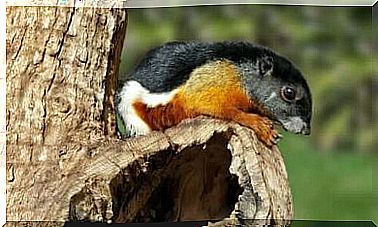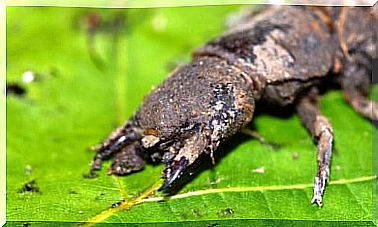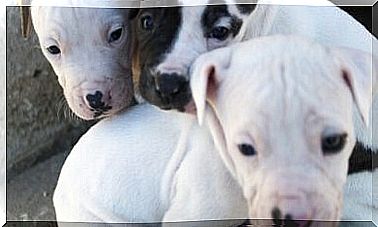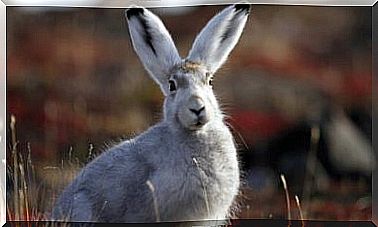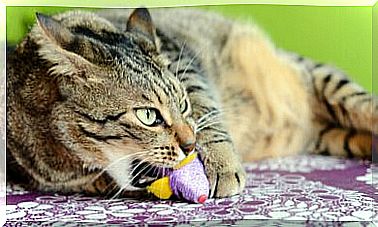Plants Toxic To Cats
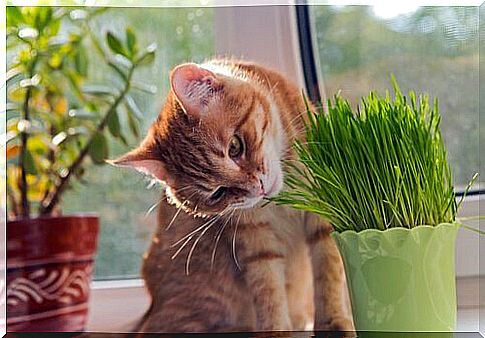
Cats love to bite the grass, and although they instinctively know which plants are harmful to their health, sometimes they don’t recognize them and this can have negative consequences. In this article, we are going to talk about some plants that are toxic to cats. Be careful if you have them at home!
Are there plants toxic to cats?
Without realizing it, we may be creating a dangerous environment for our pet. Just for wanting to decorate and fill the spaces in the house! We must keep in mind that cats are extremely curious animals and that vases, flowers and plants are one of their many “weaknesses”.
When we take a cat home, the danger increases, as they don’t know their surroundings and don’t have enough experience to know if something is harmful to their health or not.
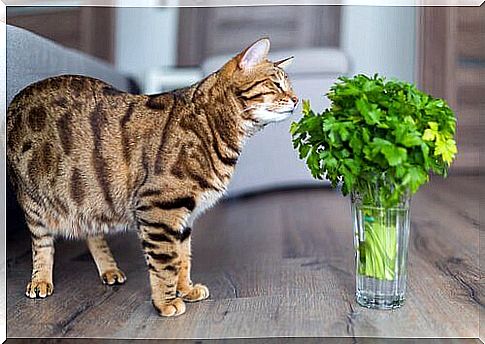
Furthermore, everything will depend on how much contact with the outside the animal has. It is not the same cat who only lives in an apartment and the one who goes to the garden every day.
Of course, not all plants are toxic. It also depends on the part the cat bites and, even, the amount ingested. Some have more harmful substances in leaves, others in flowers or bulbs.
It is important not only to know which plants are toxic to cats, but also the effects they have on your health: gastrointestinal, ocular, neurological, dermatological, respiratory or heart problems.
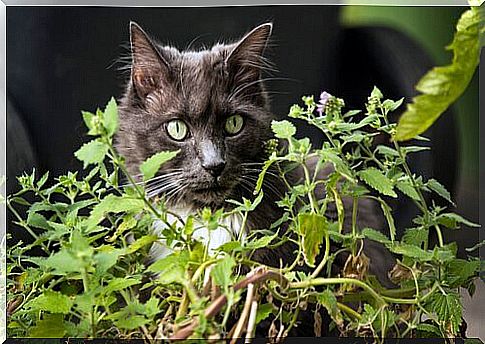
Among the most dangerous species, we can find:
-
Poinsettia (parrot)
It is very common during Christmas due to its red flowers. All parts of this plant are toxic to cats because of the sap that covers it. If the animal ingests it, it may experience abdominal pain, vomiting, diarrhea, mucosal irritation or hypersalivation. And if it only has contact with the skin, it will cause itching and dermatitis.
-
sago palm
It is a very common plant, used to decorate the interior of houses; it is of tropical type and small size. When a cat ingests it, it has the same effects as a poinsettia. But in cases of ingestion of a considerable and repetitive amount, it can even cause irreversible liver problems or death.
-
Holly
This little tree is famous for its red berries, which are also used as Christmas ornaments. The leaves, seeds and fruits are toxic if ingested. This plant contains substances called saponins, which cause gastrointestinal problems in animals.
-
Ivy
There are different types of ivy and they are all toxic to cats. Both the indoor and outdoor areas bear really dangerous fruit. If the animal rubs against them – and in other parts of the plant – it will have rashes, dermatitis and blisters.
The main problem is the ingestion of ivy; which causes from fever to spasms, passing through diarrhea and vomiting to changes in heart rhythm. Even in elderly animals it can lead to death.
-
Lilies (lily and tulip family)
They are very popular due to their beautiful and colorful flowers. They contain substances that cause acute kidney failure in cats. No matter which part of the plant – stem, flowers, leaves, roots, pollen or pistils – the animal is exposed, as the risk is very high.
For example, if the cat passes under or on the sides of lily flowers, such as a lily or a tulip, and a small pollen falls on its coat, then when it goes to lick itself, it will swallow it. And its effects can be lethal. Those who survive this plant suffer permanent kidney damage.
-
Azaleas
This is another of the cat-toxic plants that are often present in our homes. Azalea contains a very powerful toxin that affects cell membranes and causes neurological, gastrointestinal and cardiovascular problems.
Since you can’t stop the cat from exploring every corner of your home, and it wouldn’t be fair to take away the beauty of plants and flowers from your home, we recommend that you avoid growing those that are toxic to your pet. And business resolved!
